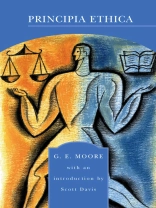When
Principia Ethica appeared, in 1903, it became something of a sacred text for the Cambridge-educated elite who formed the core of the Bloomsbury Group. In a letter of October 11, 1903, Strachey confesses to Moore that he is ‘carried away’ by
Principia, which inaugurates, for him, ‘the beginning of the Age of Reason.’ Moores critique of convention, his caustic dismissal of his philosophical predecessors, and the relentless rigor of his method promised a revolution in morality commensurate with the modernist transformation of art and literature.
Principia Ethica shifted the study of ethics away from normative questions to issues of ‘metaethics, ‘ the study of ethical concepts.
Circa l’autore
George Edward Moore didnt intend to be a philosopher. He was born in 1873 to devout evangelical parents, but according to his autobiography, ‘long before I left school, I was, to use a word then popular, a complete Agnostic.’ Moore went to Trinity College, Cambridge, in 1892, as a Classics scholar, but by the end of his freshman year his new friend Bertrand Russell was urging Moore to take up philosophy. Moore was elected to the secret Cambridge Conversazione Society, more commonly known as the Apostles, the elite of the intellectual community at Cambridge. In 1898 he was elected to a six-year fellowship at Trinity. In 1925 Moore was appointed Professor of Philosophy at Cambridge, a position that he held until his retirement in 1939. He continued to write and lecture regularly until his death in 1958.












